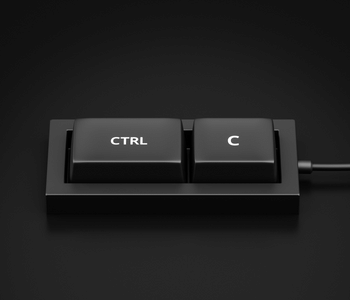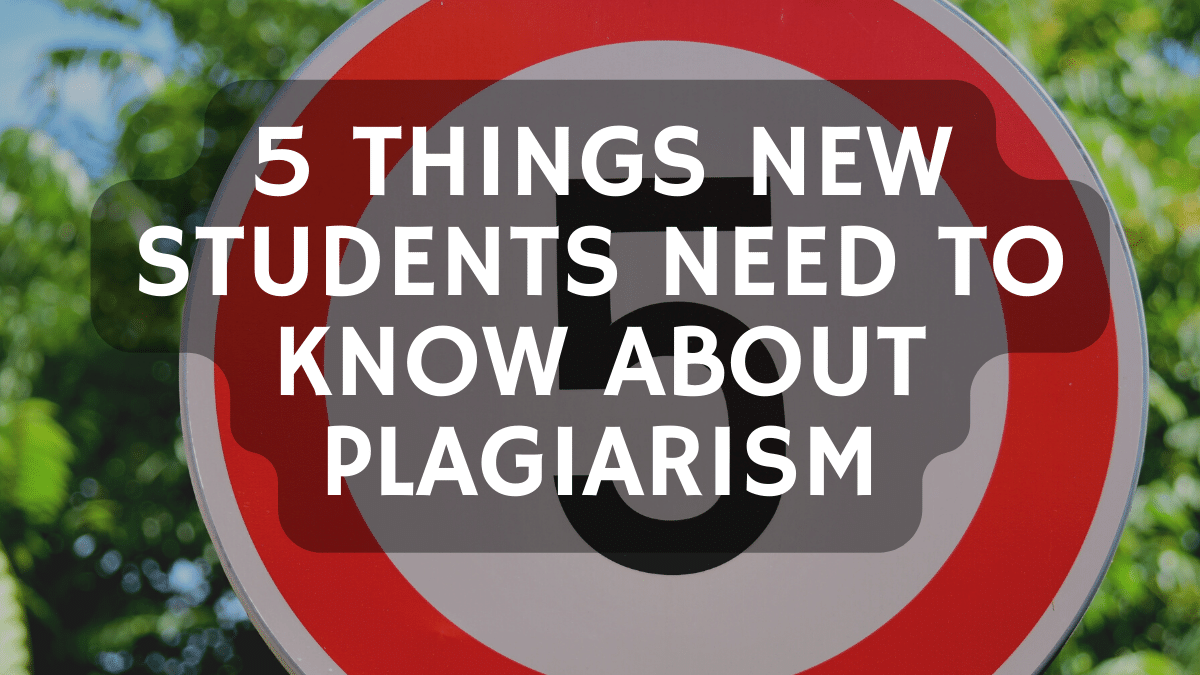5 Things New Students Need to Know About Plagiarism

With the summer months upon us, many students are preparing for the next phase of their academic journey. Whether that is going to university, starting grad school or simply entering high school, it’s a time of change in academia.
However many of those students are unprepared or at least under prepared for the standards they will be held to. Confusion about plagiarism is rampant, and it is only getting worse.
That confusion is often mixed with fear. This is especially true as schools push forward zero tolerance policies on plagiarism and hand down dire warnings of expulsions and suspensions over plagiarism issues.
So, if you’re a student entering a new phase of your academic career, there are a few points about plagiarism that you need to be clear on. Fortunately, none of them are that complicated, but failure to grasp these things can harm your academic career easily.
To that end, here are five things that every new student should know about plagiarism before starting school.
1: It’s Not Just About Text
Plagiarism detection software is really just copy detection software. Though the tools are getting more advanced at detecting authorship, not just copying and pasting, a lot of the focus in matters of plagiarism is on the text itself.
However, your work is more than just a collection of words. It’s a series of facts, ideas and theories. If those come from outside sources (beyond facts that are considered common knowledge), they needed to be cited as well.
While this may not be as severe as copying an essay off the internet or using an essay mill, failure to cite facts and ideas can definitely lower your grade and, if severe enough, result in disciplinary action.
2: How to Write in a Cleanroom
Far too many students believe that the way you create “original” text is by copying and pasting from outside sources and then editing it to make it “their own.”
That, to be clear, doesn’t work and is not how paraphrasing or writing works.
The only way to ensure that your work is plagiarism-free is to use the cleanroom writing method. With this, outside materials never mixes with your original writing. Everything that is brought in, including facts and ideas, are cited immediately.
The goal here is to have no outside text in your work, and ensure that everything that requires a citation gets one. Trying to go back and add citations later just opens the door to mistakes and potentially difficult conversations about plagiarism.
3: Your Teachers Are Your Friends
With all the fear and tough language surrounding plagiarism, it can be difficult to even ask questions. However, teachers are almost universally happy to help you with citation if you have questions.
Unsure if something is common knowledge? Unclear on how to cite something? Need help writing a passage in your own voice? Ask your teacher.
Failing that, most schools have student help centers that can be a resource in times of need.
Coming forward with questions, either in class or privately as appropriate, doesn’t make you look like someone trying to get away with cheating. Instead, it makes you seem like someone who is putting in extra effort to not plagiarize.
This can help a great deal if an issue is discovered down the road.
4: Most Cases of Academic Plagiarism Don’t End in Expulsion
Most schools do reserve the right to take strong punishments against plagiarists. This can include a failing grade in the class, suspension or even expulsions.
However, the harshest punishments are typically only reserved for the most extreme cases. It’s very rare for first time offenders to be treated anywhere nearly that harshly.
According to one survey, teachers rarely even report the first incident of infringement that they detect and simply handle the matter in class, either giving a failing grade on the assignment, forcing the student to repeat it or forcing the student to take some other disciplinary action.
While buying a term paper online or copying your entire work from Wikipedia may still bring the hammer down, it is very unlikely that an unintentional plagiarism issue will have too big of an impact on your academic career. This is especially true if you seek help before the issue arises.
So, while you should still be very vigilant about how you incorporate outside sources into your writing, you shouldn’t worry that a single mistake is going to end your college career.
5: Not Everyone is Doing It
Finally, it’s easy to believe that everyone is committing plagiarism, that is incredibly common and the majority of students are not doing it.
Before the pandemic, only about a third of students admitted to committing any kind of plagiarism over the course of their academic career. Most of these students are not buying papers off the internet or turning in works of wholesale plagiarism. Instead, many likely only plagiarized a few sentences that weren’t properly cited.
When you look at students that report taking those drastic steps, only 7% admitted to doing anything on that scale and only 3% admitted to obtaining a paper from an essay mill.
By all accounts, the number of students who committed any level of plagiarism went up drastically during the pandemic, to around 45%. However, even under the most difficult circumstances, more than half of all students didn’t commit any amount of plagiarism in their work.
To be clear, educators are rightfully alarmed by these numbers, but students should not move forward with plagiarism simply because “everyone else is doing it”. The simple truth is that most of your classmates are not, even during the most difficult of times.
Bottom Line
To be clear, this list could be much longer. Someday, it may even be wise to do a sequel.
However, these are five key takeaways that every new student should know about plagiarism right now.
In the end, perhaps the most important thing for a student to know is that they should pay attention to their school’s policies, ask questions when they have them and learn how to write in a cleanroom environment.
If you do those three things, you shouldn’t have any issues with plagiarism over the course of your academic career.
The reality is that avoiding plagiarism isn’t that difficult, even if it can be intimidating to think about the subject when writing.
Want to Reuse or Republish this Content?
If you want to feature this article in your site, classroom or elsewhere, just let us know! We usually grant permission within 24 hours.
